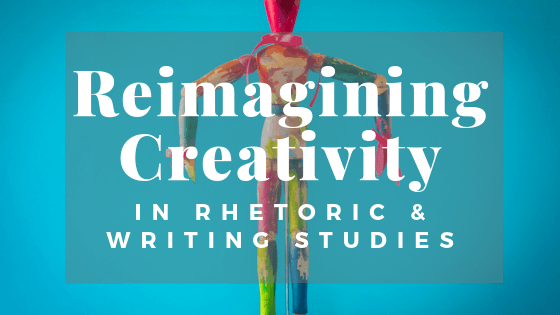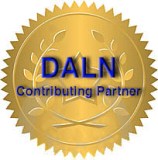21st Century Englishes 2019 Call for Proposals

Reimagining Creativity in Rhetoric and Writing Studies: 21st Century Englishes Conference
The 21st Century Englishes Conference is hosted by the Rhetoric Society of the Black Swamp, Bowling Green State University’s (BGSU) Student Chapter of the Rhetoric Society of America, and BGSU’s Rhetoric & Writing Ph.D. Program. It is sponsored by BGSU’s English Department.
Date: Saturday, November 2, 2019
Time: Registration opens at 8:00 AM; Opening remarks begin at 8:45 AM
Location: Bowen Thompson Student Union, Bowling Green State University
Contact Information: Co-Chairs Emma Guthrie & Morgan McDougall
Proposal Deadline: Friday, September 20, 2019 @ 11:59 PM
Creativity is a term that we often hear around English Departments. Not only do we house creative writing programs, but every English program includes their own version and adaptation of the term creativity. In the text Keywords in Writing Studies, Tim Myers explains that the word creative means much more than would be found within a dictionary: “Creativity is arguably one of the most ambiguous words in the discourse of writing studies” (p. 47). We view this ambiguity through a positive lens, understanding that creativity is something that should be broadly defined in order to accommodate the various uses and applications of creativity. We are creative in our teaching and administration, our writing, our multimodal and/or digital compositions, and our methods for conducting research.
Creativity within the field of rhetoric and writing studies has held a varied position. Within this field, writing is situated, participatory, action-based, and responsive. These meaning-making practices span across cultures and develop over a writer’s lifetime. Rhetorical, cultural, empirical, and technological approaches to writing research characterize the discipline in the 21st century, and although it may appear as if there is a divide between rhetoric and writing studies and creative writing studies, there are many overlaps in methodologies as well as histories.
Looking back to the late nineteenth and early twentieth centuries, creativity was a well-regarded concept in both the United States and the United Kingdom; although this perspective did not last long:
...the scholars who legitimized literary criticism as an academic discipline tended in practice to focus on the interpretation of established literary works as opposed to any analysis of their production. The creativity of literary artists was assumed, but rarely ever explained or theorized. (p. 48)
By the late twentieth century, writing studies moved into a phrase of “expressivism,” also known as the “process-based” movement. This movement is defined by teachers who believe in their students' creativity: “expressivists believed that all students were endowed with creativity, not just a select few. For expressivists, those students who initially appeared to be void of creativity simply needed to have their creativity sparked or awakened” (p. 49).
Following the perspective on creativity sparked by the expressivist movement, we seek to explore all of the questions and interpretations of creativity as they relate to the field of writing studies. Creativity and art-based approaches have an important place within writing studies, as these encourage identity, agency, writing transfer, and a full breadth of expression. “Creative, multigenre identity work can help students to thrive as the multidimensional writers they are” (Nolan, 2019, p. 234) and creative work belongs to other realms of academic work as well. Throughout this conference, we hope to engage in conversations surrounding where we have been, where we currently stand, and where we might go in the future of writing studies concerning creativity.
We invite individual and panel proposals on this theme from graduate students as well as their collaborators (colleagues, faculty, staff, students, research participants, community members, etc.). These proposals may be prompted by, but are not limited to, the questions below:
Creative Approaches to Research
How do we conduct, create, and publish research in creative ways in Rhetoric and Writing Studies?
What are the challenges and benefits of blurring the lines of creative and critical work in our field and academia as a whole?
When considering the various terms for creative research—hybrid writing, auto-criticism, and autoethnography, to name a few—what work have we already done and where are we going, both as individuals and throughout the field?
How do we engage in multi-genre writing research?
Creative Approaches to Teaching
What does it mean to be a creative teacher?
What do creative classrooms look like?
How do we create spaces of creativity in our classrooms—both in approaches to our instruction and in encouraging creative thinking in our students?
What strides must we take to ensure that innovation and creativity in the classroom are purposeful and not simply for the sake of doing something different? How do we know that creative approaches are effective approaches?
How do we enhance student identity and agency through creative approaches to teaching?
Creative Writing in the Classroom
What role does creative writing have in FYC or upper-level writing courses?
What are the benefits and challenges of incorporating specific creative genres, such as fiction, poetry, or creative nonfiction, into our writing instruction?
What is our responsibility as teachers to help students recognize all writing as creative and what can we do to get them there?
Creativity and Writing Program Administration
What role does creativity play in writing program administration, broadly defined?
What role does creativity play in writing beyond composition, in self-sponsored or extradisciplinary spaces, and even beyond the university?
What role does creativity play in developing habits of mind?
If we value the development of creativity in students, how do we assess creativity?
Creative Approaches with Digital Technology in the Writing Classroom
What role do digital technologies have in the writing classroom?
How do we ensure that digital technologies enhance pedagogy and classroom environments rather than take away from student writing experiences?
How can digital technology be used to create a more inclusive classroom environment?
How can technology be used for creative group activities and in-class discussions?
How can technology be used to augment or replace traditional writing assignments?
Conference Artwork Display
In addition to presentations of scholarship, we invite creative submissions of digital and nondigital multimodal projects, posters, visual art, poetry, and other creative works to display through the duration of the conference. While all genres of creative work will be considered, submissions with a visual component (or those that will translate well on display without oral presentation) will be given preference. Along with your submission please include a 250 word artist/author statement to accompany the display. You are not required to remain by your creative submission throughout the conference, allowing for submissions to the Conference Artwork Display in addition to other conference submissions.
Submission Guidelines
Please submit all proposals via email to 21stcon@gmail.com as Microsoft Word attachments. If desired, you may submit multiple proposals for different types of presentations. For example, if you would like to give an individual presentation and a workshop presentation, you are more than welcome to submit two separate proposals. While we will allow two submissions for different types of presentations, we will not accept multiple submissions for the same type of presentation (ex. Two individual paper presentations).
Individual/Project Proposals*: Please include a title, a 50 word abstract to include in the program, and a 250 word proposal. Also include presenter(s) name(s), email(s), and university affiliation(s). Presenters should plan on 15 minutes per project. Proposals of similar topics will be grouped in 75-minute panels (including Q & A) of 3-4 projects.
Panel Proposals: Please include a title, a 50 word abstract of the panel, a 750 word proposal, and a 50 word narrative of the relationships between the presenters to include in the program. Also include presenter names, emails, and university affiliations. Panels should plan for 75 minutes total, including Q & A time. There is no limit to the number of panelists, but we ask that all panelists are active contributors/facilitators during the panel.
Workshop Proposals: Please include a title, a 50 word abstract of the workshop, a 750 word proposal describing plans and activities for the workshop, and a 50 word narrative of the relationships between the presenters to include in the program. Also include presenter names, emails, and university affiliations. Workshops should plan for 75 minutes total. There is no limit to the number of panelists, but we ask that all panelists are active contributors/facilitators during the panel.
Artwork Display Proposals: Please include a title and a 250 word artist/author statement to be displayed with the piece. Outside of the 250 word description, please include the preferred method of display (table, wall, floor standing, etc.) and, if possible, attach an image of the artwork. Also include artist(s) name(s), email(s), and university affiliation(s).
*If you have a project that is co-authored, we recommend submitting it as an individual/project proposal. If there are 3 or more collaborators, we recommend submitting it as a panel proposal. In the spirit of innovation and presentations that explicitly invite collaboration with/among audience members, we invite projects and panels to structure their delivery in any interactive manner they please, such as workshops, roundtables, teaching demonstrations, or creative readings. Each room will have a projector, a computer station, and whiteboards. We are also happy to work with you to provide the kind of space that could help facilitate your presentation.
Updated: 08/20/2021 04:28PM

